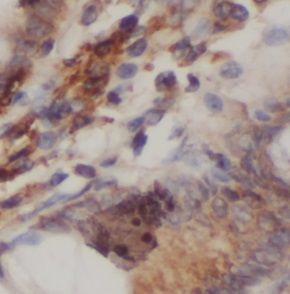| Clonality | polyclonal |
| Host | Rabbit |
| Specificity | Human |
| Tested Application | ELISA, IHC |
| Delivery Time | 2 to 4 working days |
| Isotype | IgG |
| Form | liquid |
| Purification | Immunogen affinity purified |
| Purity | ≥95% as determined by SDS-PAGE |
| Uniprot ID | Q04759 |
| Gene ID | |
| Calculated MW | 85 kDa |
| Ссылка на страницу на сайте производителя | ссылка |
| Инструкция | PDF |
| Storage | PBS with 0.02% sodium azide and 50% glycerol pH 7.3,-20℃ for 12 months(Avoid repeated freeze / thaw cycles.) |
| Background | Protein kinase C (PKC) is a family of serine- and threonine-specific protein kinases that can be activated by calcium and the second messenger diacylglycerol. PKC family members phosphorylate a wide variety of protein targets and are known to be involved in diverse cellular signaling pathways. PKC family members also serve as major receptors for phorbol esters, a class of tumor promoters. Each member of the PKC family has a specific expression profile and is believed to play a distinct role. The protein encoded by this gene is one of the PKC family members. It is a calcium-independent and phospholipid-dependent protein kinase. This kinase is important for T-cell activation. It is required for the activation of the transcription factors NF-kappaB and AP-1, and may link the T cell receptor (TCR) signaling complex to the activation of the transcription factors. |
| Immunogen | PRKCQ |
| Synonyms | PRKCQ, PRKCT, nPKC-theta, protein kinase C theta |
| Recommended dilution | IHC: 1:50 - 1:200 |
Immunohistochemistry of paraffin-embedded human colon cancer using FNab10092(PRKCQ antibody) at dilution of 1:50
 |
| | |
